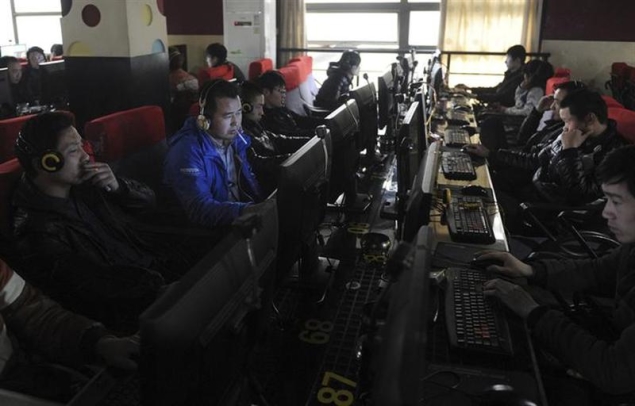- Home
- Others
- Others News
- Migrant bill seems to fit tech sector's wish list
Migrant bill seems to fit tech sector's wish list

The proposed overhaul of immigration law contains much of what the technology industry wished for an easier green card route for foreigners educated at U.S. universities in math and science; a new visa category for entrepreneurs; and more guest workers to be deployed on short-term projects.
Beyond the specific provisions, which are likely to be debated extensively once legislation is introduced on Capitol Hill, a summary released Tuesday by a bipartisan committee of eight senators is a clear nod to a prospering and more politically powerful technology industry.
It shifts the emphasis in immigration policy from one that prioritized family ties to one that will prioritize professional degrees, making it easier for people with math and science skills to settle in the U.S.
"That major reorganization tells me this Congress recognizes that the knowledge economy is going to drive the overall economy," said Robert Hoffman, a longtime Washington lobbyist and vice president of the Information Technology Industry Council, a group of some of the largest technology employers, including IBM and Microsoft.
"The devil is in details," Hoffman said. "We've got to look under the legislative hood, which is what we'll do when we get the bill."
The summary contains an important nod to critics of the temporary employment visas, known as H-1Bs. It makes it significantly more expensive for the mostly Indian outsourcing companies that supply engineers and other computer specialists to U.S. companies for short-term projects and that are accused of depressing wages in the industry.
The summary released by the Gang of Eight would raise fees for those companies with U.S. workforces made up mostly of guest workers.
In effect, a company like Tata Consultancy Services, of India, which brings computer workers from abroad to work temporarily at U.S. companies, would pay a surcharge to import guest workers.
By contrast, a company like Microsoft would not, because although it imports thousands of guest workers, a majority of its employees are U.S. citizens or residents. Eventually, companies with a preponderance of guest workers would be ineligible to bring in more, according to the summary.
It also proposes to raise wages for all guest workers in the U.S. on an H-1B visa and requires employers to advertise job openings to prospective U.S. workers. It would raise the total number of H-1B visas to 110,000 a year, from the current 65,000, with a provision for as many as 180,000 during years of demonstrably high demand.
"From my read of it, it has Silicon Valley with protections for American workers, if indeed all of this is eventually passed," said Neil Ruiz, an associate fellow at the Brookings Institution.
The summary also seeks to reduce the wait for math and science graduates who apply for green cards, regardless of their home country. Currently, because every country is eligible for the same share of employment-based green cards, applicants from China and India wait far longer than virtually anywhere else.
© 2013, The New York Times News Service
Get your daily dose of tech news, reviews, and insights, in under 80 characters on Gadgets 360 Turbo. Connect with fellow tech lovers on our Forum. Follow us on X, Facebook, WhatsApp, Threads and Google News for instant updates. Catch all the action on our YouTube channel.
Related Stories
- Samsung Galaxy Unpacked 2026
- iPhone 17 Pro Max
- ChatGPT
- iOS 26
- Laptop Under 50000
- Smartwatch Under 10000
- Apple Vision Pro
- Oneplus 12
- OnePlus Nord CE 3 Lite 5G
- iPhone 13
- Xiaomi 14 Pro
- Oppo Find N3
- Tecno Spark Go (2023)
- Realme V30
- Best Phones Under 25000
- Samsung Galaxy S24 Series
- Cryptocurrency
- iQoo 12
- Samsung Galaxy S24 Ultra
- Giottus
- Samsung Galaxy Z Flip 5
- Apple 'Scary Fast'
- Housefull 5
- GoPro Hero 12 Black Review
- Invincible Season 2
- JioGlass
- HD Ready TV
- Latest Mobile Phones
- Compare Phones
- Tecno Pova Curve 2 5G
- Lava Yuva Star 3
- Honor X6d
- OPPO K14x 5G
- Samsung Galaxy F70e 5G
- iQOO 15 Ultra
- OPPO A6v 5G
- OPPO A6i+ 5G
- Asus Vivobook 16 (M1605NAQ)
- Asus Vivobook 15 (2026)
- Brave Ark 2-in-1
- Black Shark Gaming Tablet
- boAt Chrome Iris
- HMD Watch P1
- Haier H5E Series
- Acerpure Nitro Z Series 100-inch QLED TV
- Asus ROG Ally
- Nintendo Switch Lite
- Haier 1.6 Ton 5 Star Inverter Split AC (HSU19G-MZAID5BN-INV)
- Haier 1.6 Ton 5 Star Inverter Split AC (HSU19G-MZAIM5BN-INV)






![[Partner Content] OPPO Reno15 Series: AI Portrait Camera, Popout and First Compact Reno](https://www.gadgets360.com/static/mobile/images/spacer.png)









